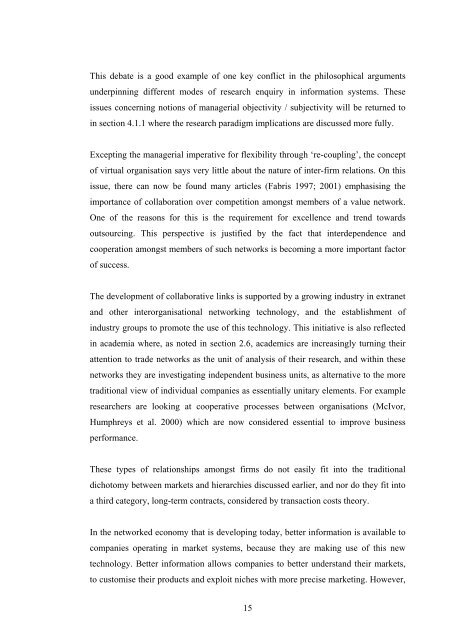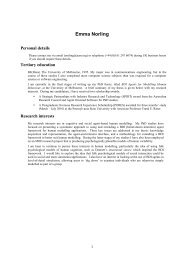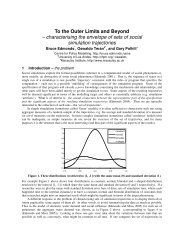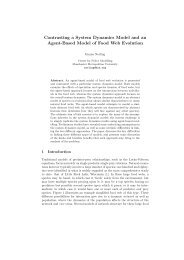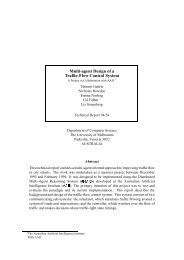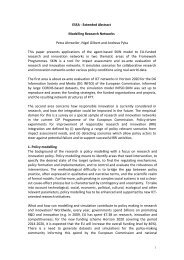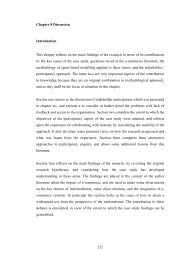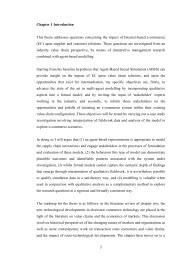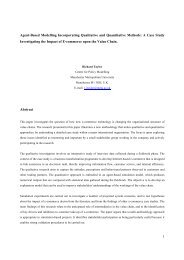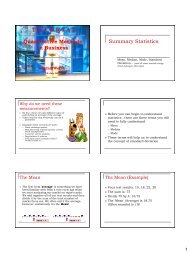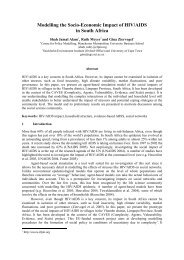7 Chapter 2 Literature Review: Markets, Intermediation and E ...
7 Chapter 2 Literature Review: Markets, Intermediation and E ...
7 Chapter 2 Literature Review: Markets, Intermediation and E ...
You also want an ePaper? Increase the reach of your titles
YUMPU automatically turns print PDFs into web optimized ePapers that Google loves.
This debate is a good example of one key conflict in the philosophical arguments<br />
underpinning different modes of research enquiry in information systems. These<br />
issues concerning notions of managerial objectivity / subjectivity will be returned to<br />
in section 4.1.1 where the research paradigm implications are discussed more fully.<br />
Excepting the managerial imperative for flexibility through ‘re-coupling’, the concept<br />
of virtual organisation says very little about the nature of inter-firm relations. On this<br />
issue, there can now be found many articles (Fabris 1997; 2001) emphasising the<br />
importance of collaboration over competition amongst members of a value network.<br />
One of the reasons for this is the requirement for excellence <strong>and</strong> trend towards<br />
outsourcing. This perspective is justified by the fact that interdependence <strong>and</strong><br />
cooperation amongst members of such networks is becoming a more important factor<br />
of success.<br />
The development of collaborative links is supported by a growing industry in extranet<br />
<strong>and</strong> other interorganisational networking technology, <strong>and</strong> the establishment of<br />
industry groups to promote the use of this technology. This initiative is also reflected<br />
in academia where, as noted in section 2.6, academics are increasingly turning their<br />
attention to trade networks as the unit of analysis of their research, <strong>and</strong> within these<br />
networks they are investigating independent business units, as alternative to the more<br />
traditional view of individual companies as essentially unitary elements. For example<br />
researchers are looking at cooperative processes between organisations (McIvor,<br />
Humphreys et al. 2000) which are now considered essential to improve business<br />
performance.<br />
These types of relationships amongst firms do not easily fit into the traditional<br />
dichotomy between markets <strong>and</strong> hierarchies discussed earlier, <strong>and</strong> nor do they fit into<br />
a third category, long-term contracts, considered by transaction costs theory.<br />
In the networked economy that is developing today, better information is available to<br />
companies operating in market systems, because they are making use of this new<br />
technology. Better information allows companies to better underst<strong>and</strong> their markets,<br />
to customise their products <strong>and</strong> exploit niches with more precise marketing. However,<br />
15


